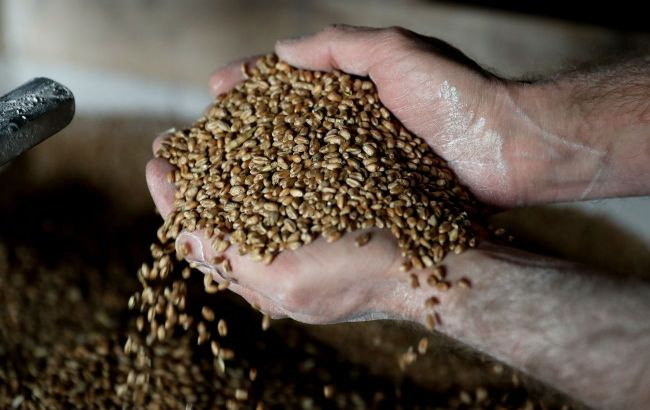Grain embargo: Why Ukrainian food became a problem for Europe and how to solve it
 Grain embargo: Why Ukrainian food became a problem for Europe and how to solve it (Getty Images)
Grain embargo: Why Ukrainian food became a problem for Europe and how to solve it (Getty Images)
The full-scale Russian aggression has significantly impacted the export of agricultural products from Ukraine. European Union states came to the rescue, ensuring exports through their own ports. However, the influx of grains and other crops affected the income of local farmers, leading neighboring countries to start banning the import of Ukrainian agricultural products.
Ukraine was one of the leading global exporters of agricultural products, including grains, prior to Russia's full-scale invasion in February 2022.
Russian aggression limited Ukraine's ability to deliver agricultural products to world markets through Black Sea ports. Since then, Ukrainian farmers have relied on exports through neighboring countries.
However, the influx of grains and oilseeds into neighboring states significantly impacted the incomes of local farmers.
Suspension of grain imports
Starting in the spring of 2023, five countries bordering Ukraine, Poland, Bulgaria, Hungary, Romania, and Slovakia, expressed dissatisfaction with the sale of Ukrainian agricultural products in their domestic markets.
Local farmers protested, demanding to reinstate tariffs on Ukrainian grain or to prohibit importing agricultural products from Ukraine. They explained their position that the surplus of Ukrainian products caused a sharp drop in purchase prices for local producers.
The governments of neighboring countries suspended the grain import, citing the protection of their own producers.
Import ban
In May the European Union allowed five states to impose a ban on the sale of Ukrainian wheat, corn, rapeseed, and sunflower seeds in their domestic markets. However, transit of such goods for export to other countries was permitted. The ban was in effect until September 15.
The European Commission also allocated an additional €100 million to support farmers in Poland, Hungary, Slovakia, Romania, and Bulgaria and calm the situation.
Lifting the ban
Ukraine hoped that the European Commission would lift all restrictions on Ukrainian agricultural exports after September 15. However, when the EU ban expired, five countries called for an extension of the ban until the end of the year.
On September 15, the European Commission did lift restrictions, as the market distortion in the five neighboring EU countries had been resolved. However, the story didn't end there.
Unilateral decisions
Despite the EU Commission's decision to lift the ban, Poland, Slovakia, and Hungary announced their intention to maintain their own restrictions.
While Slovakia continued its previous ban on four types of grain, Poland introduced additional bans on Ukrainian flour and animal feed. Meanwhile, Hungary went further, banning 25 more products that had not been previously discussed, including meat.
Poland's reaction to this issue has been particularly sharp. Minister of Agriculture Robert Telus says that Poland might even block Ukraine's accession to the European Union if the issue of importing Ukrainian agricultural products is not resolved.
In contrast, Bulgaria and Romania lifted their restrictions. However, the Prime Minister of Romania says that the country might impose a 30-day ban on importing Ukrainian agricultural products. He mentioned that after the European Commission's decision, Romania had not imported a single kilogram of Ukrainian wheat. However, if the country receives appropriate export requests, it may extend the restrictions.
Ukraine to file a lawsuit with the WTO
Ukraine has already filed lawsuits against Poland, Slovakia, and Hungary with the World Trade Organization (WTO) over the grain import ban.
Ukraine's Minister of Economy, Yulia Svyrydenko, notes it is crucial to prove that the actions of these countries are legally unjustified.
At the same time, Ukraine hopes that the states will remove their restrictions, avoiding prolonged legal battles. Additionally, the actions taken by Ukraine and the pressure from the European Commission and other member states may help restore normal trade between Ukraine and its neighboring countries, demonstrating solidarity.
Furthermore, Ukraine is willing to take responsibility to ensure that the export of its products does not cause disruption in neighboring countries. Kyiv intends to introduce an export licensing system for grain to slow down exports and allow the state to respond quickly in case of a surge.

